MasterSounds Valve MK 2 is a beautiful rotary mixer for DJs daring to sidestep digital
Analogue dreams are made of this but how easy is it to grasp – let alone part with your money?
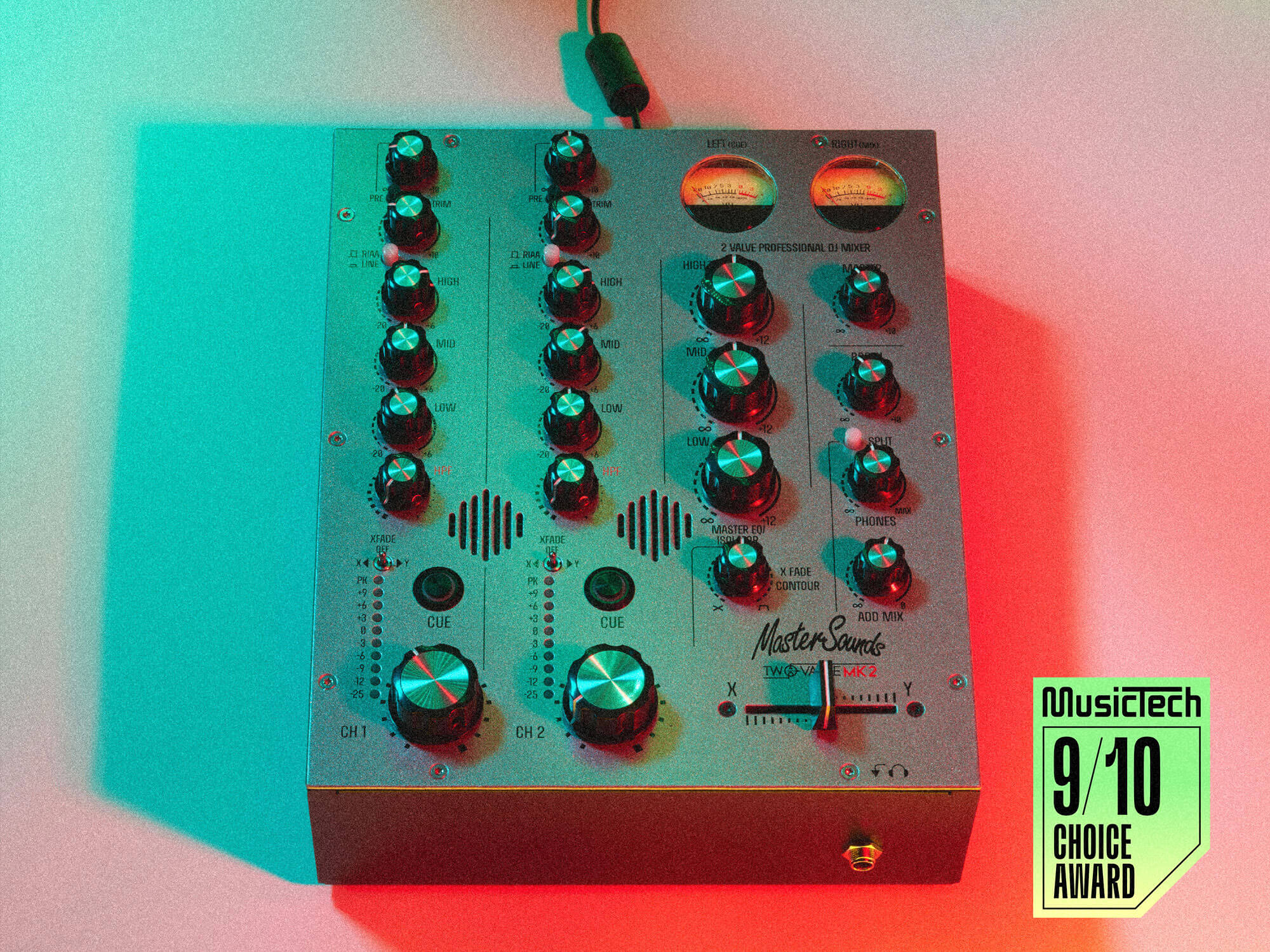
Image: Simon Vinall for MusicTech
Review Overview
Our rating
9
Our verdict
⊕ Glorious warm sound
⊕ Supremely precise controls
⊖ Prohibitive price – and the blue finish costs even more
⊖ Lacks connections such as USB, wifi, and Bluetooth
Setting aside the age-old digital versus vinyl debate, few other topics split the DJ world like a lavish rotary mixer. For the uninitiated, the notion of swapping crossfaders for dials may sound intimidating. But, with a promise of sharper control over your mixes and a smoother, more comforting sound, perhaps analogue cuddles are worth the additional expense.
With this in mind, MusicTech handed me – a digital DJ who has never touched a rotary mixer before – the MasterSounds Four Valve MK2 and asked me to get to grips with it. The question being, “can I be convinced that a four-channel rotary mixer with very few effects and connections is worth £2,700?” As it happens, MusicTech’s editor and I were both surprised at my findings.
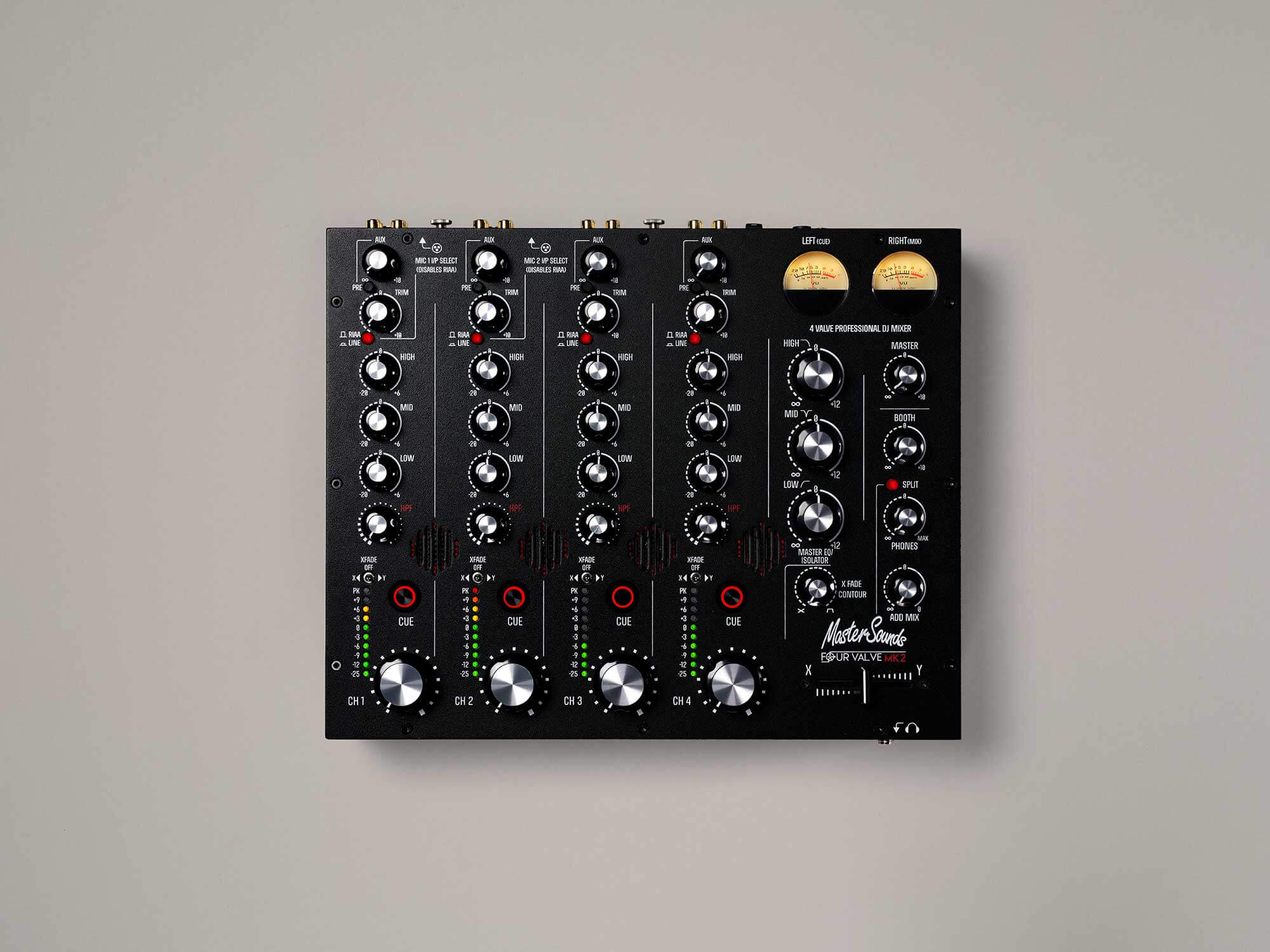
Building on the success of its award-winning Radius series, rotary models like the Valve MK 2 evoke a ‘golden age of sound’ dating back to the first disco mixers. This means they tend to court the vinyl crowd, but given they also offer digital DJs a portkey to the analogue kingdom, theoretically my experience should feel more pronounced. Ryan Shaw, head of MasterSounds, said as much in our recent interview.
Unbox the black Valve MK 2 (also available in grey or an alluring midnight blue edition) and the award-winning partnership with fellow boutique brand Union Audio is immediately apparent. Not only in the exceptional build quality but because the components, layout, and VU (volume unit) meters mirror the brand’s Orbit.6 mixer, designed by the legendary Andy Rigby-Jones of Allen & Heath Xone series notability. This is a mixer that’s hand-built in Britain, and it shows.
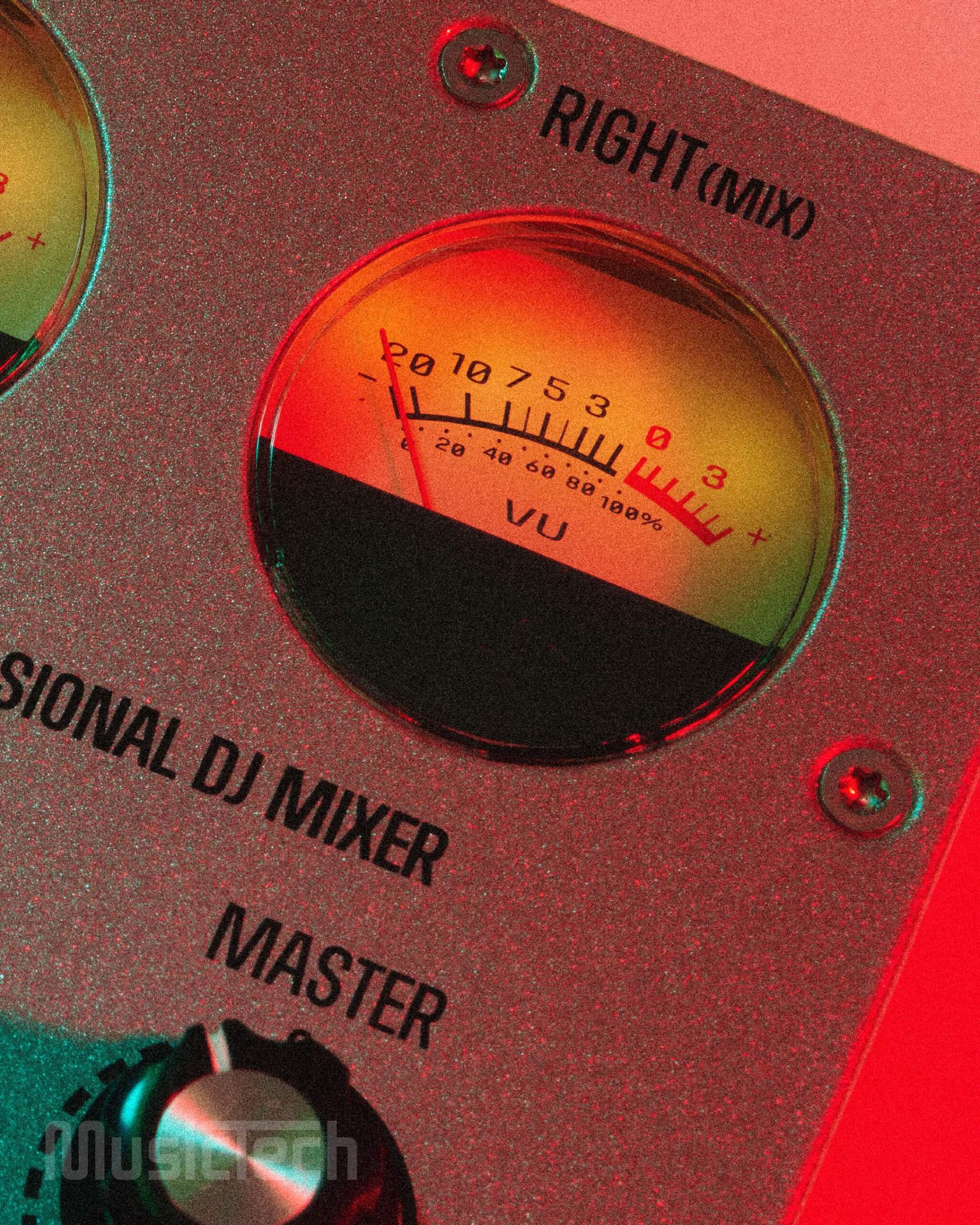
The analogue VU meters for master and cue also have the distinction of doubling as a visual warning to keep your levels in check, glowing red when things get a little too tasty and you clip. They’re not the only thing to catch your eye, however, because nestled neatly in the bottom right corner is a crossfader.
An alien concept on many rotary mixers, the crossfader opens up a variety of blending styles from a basic fade to smooth beat matching and complex scratch manoeuvres. Crossfade contour controls can fine-tune your crossfader slope. Other comforting inclusions are red illuminated cue buttons and LED level meters. The Valve MK 2 is an inclusive rotary mixer, and MasterSounds wants you to know it.
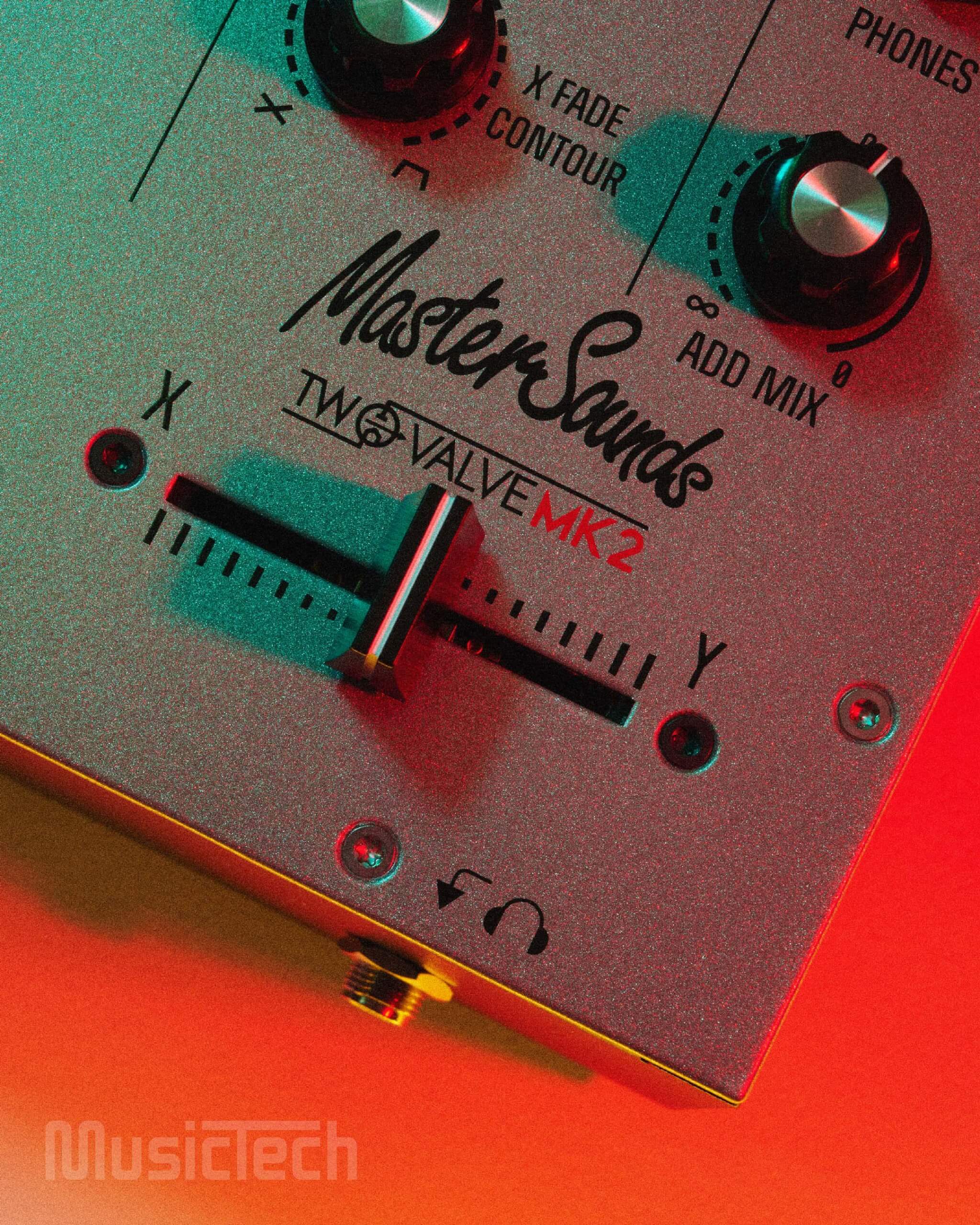
Connecting our Valve MK 2 to Pioneer CDJs and KRK V8 monitors might seem like sacrilege, but MasterSounds call this a boutique mixer aimed at clubs and DJs requiring a conventional toolkit. So, testing with a realistic setup feels appropriate.
The first thing we notice when switching on is the distinct lack of noise. It’s as deafening as it is delightful. And if that’s not enough, discerning audiophiles can opt for an optional linear power supply for even finer stability. A welcoming red glow from the input stage valves signal the Valve MK 2 is ready to roll. Although be warned, if you’re playing in a particularly cold environment, MasterSounds recommend you wait 30 minutes to warm up (the mixer, not you).
Clutching the MK 2’s numerous knobs, everything is impressively tactile while the rotary fader dials for each channel move smoother than a waxed salamander. If you’re used to a ‘club standard’ mixer, reaching for the crossfader on the right may become second nature, but breaking free of this security blanket can be liberating. As someone who DJs with two pals that despise crossfaders, whereas I revert to type, perhaps we’ve found our happy place.
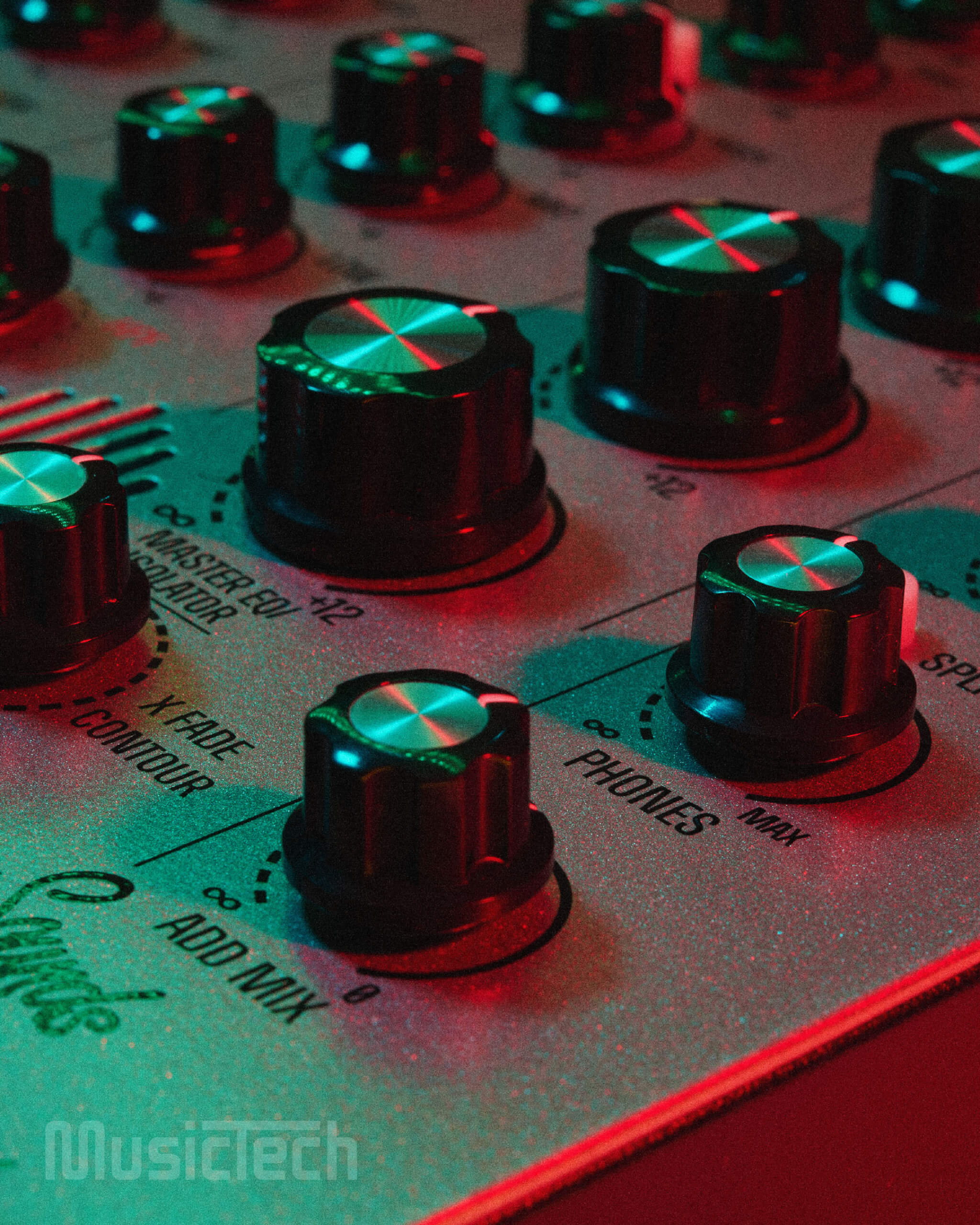
So how does it sound? Well, you know that stoned grin dogs get when they’re content with life? That. The Valve MK 2’s output and isolators are seriously warm and wonderfully mellow, with beautifully blended frequencies that feel like the antidote to the cold, isolated sound of some digital counterparts. It’s an indulgent openness you’ll experience from a line-in source as well as a phono.
As someone not averse to six-hour sets, I can imagine undertaking marathon sessions with the MasterSounds Valve MK 2. At no stage does the sound seem excruciatingly harsh or crunchy. This is a mixer that takes the edge off, soothing like a hair-of-the-dog hangover cure, making it an agent provocateur for all-day (or all-night) parties.
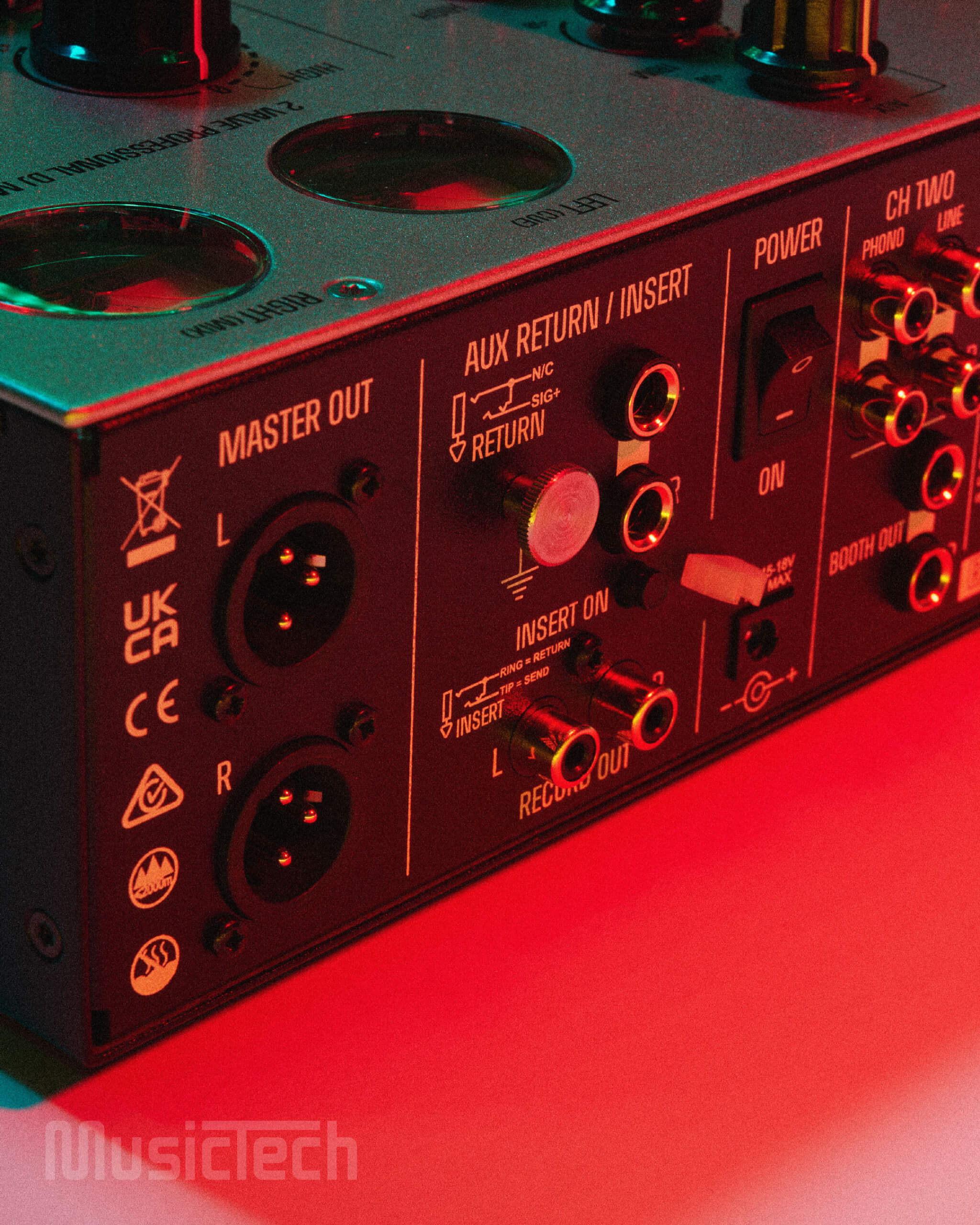
Although my time with the MK 2 is limited, it’s long enough to reveal some pleasant nuances that will make the most of your sessions. For example, don’t immediately take the bottom end off when mixing out – this mixer can handle the full throttle of low frequencies and you will feel like a demigod every time it delivers.
Our top tip, though, would be to manoeuvre yourself into a position where you can use the full range of the rotary fader dials. This might seem a bit like mad scientist behaviour, but it will give you the maximum possible headspace for perfecting your mix, which is a rotary mixer raison d’etre after all. To achieve this, try pushing the master output up and twisting the trims a little higher.
Your other friend here is the master EQ/isolator. You get a three-band EQ and gain controls per channel (inclusive, remember), but the master EQ gives you a massive 12dB swing that will have you leaping like Homer Simpson in the Land of Chocolate. Just don’t get too cocky, the UV meters glow red, remember.
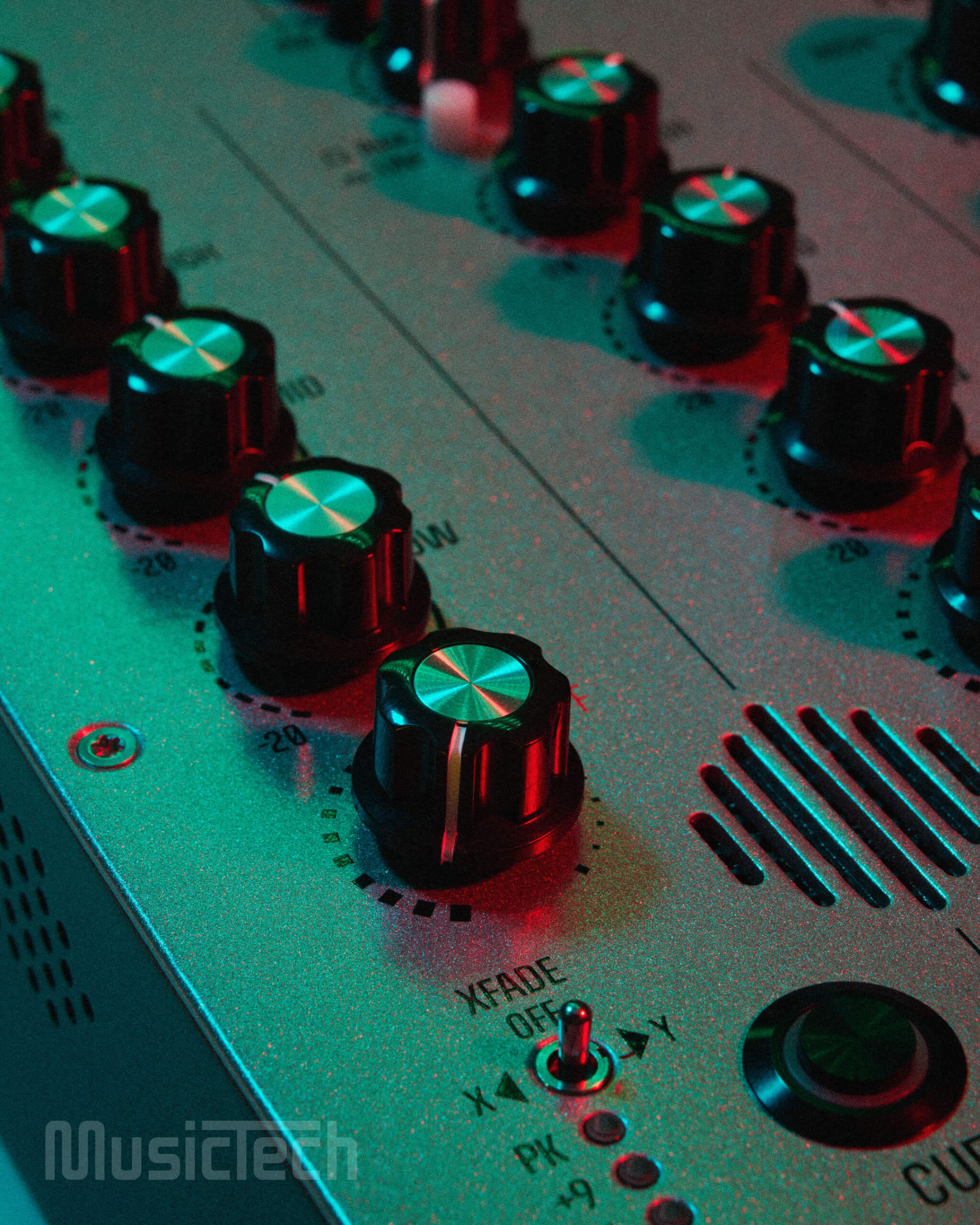
And so to the downsides. At £2,695 for the four-channel variant, the Valve MK 2 is by no means affordable. It may be comparable in price Pioneer DJ’s flagship DJM-A9, that’s a bit like comparing a classic car with the latest luxury EV – it’s far lighter on features and far lighter in general at over half the weight.
But what it lacks in USB ports, digital displays, and wifi connectivity, it more than makes up for in infectious character coupled with an innate ability to banish bloatware and just let you DJ. It’s that final point that makes the Four Valve far less intimidating for first timers than rotary mixer detractors would have you think, and MasterSounds will have to rip it from my grasp when they ask for it back.
Learn more at mastersounds.co.uk.